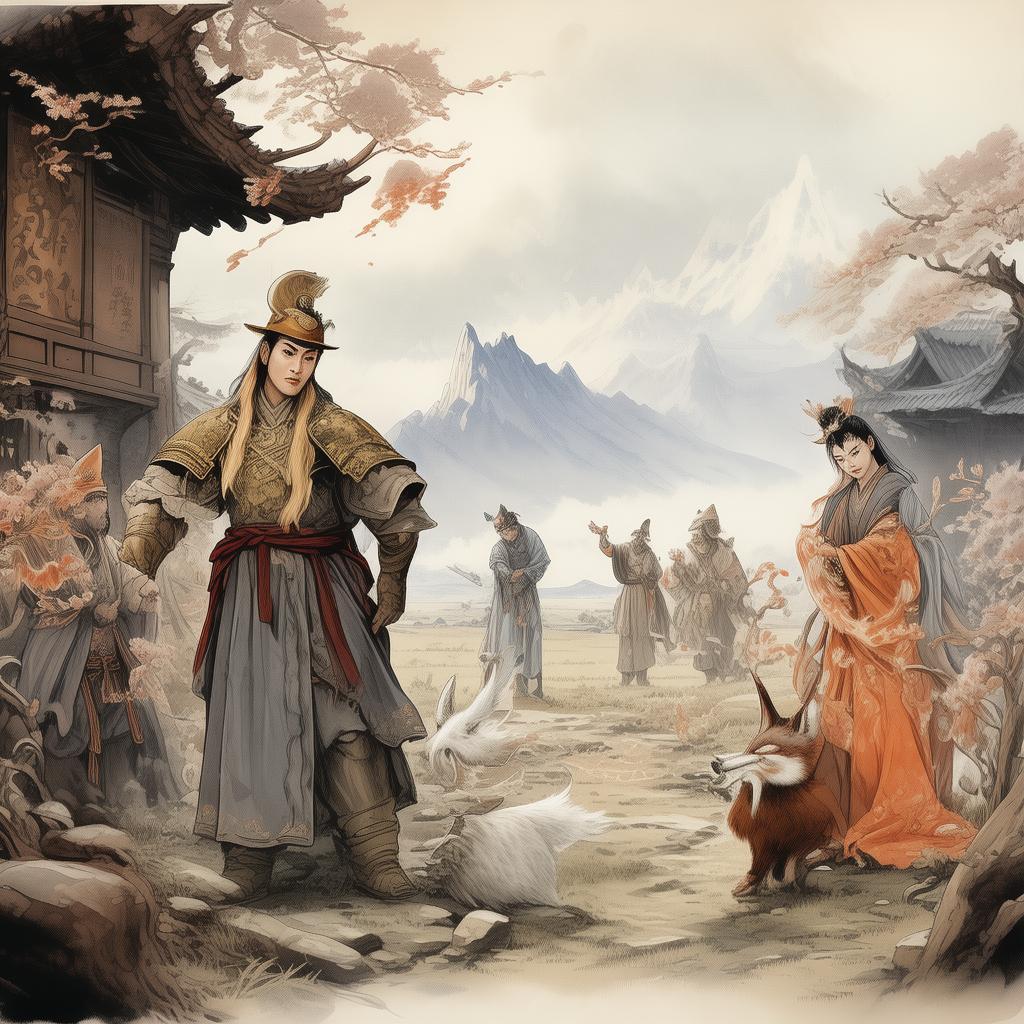The Last Bread of Sorrow
In the wake of the 471st plague, the world was a wasteland, a place where the once vibrant lands had turned to dust, and the echoes of laughter were replaced by the somber whispers of the dead. Among the few who survived were those who had hidden, those who had believed in the legend of the Last Bread of Sorrow—a loaf that, according to an ancient tale, held the power to heal and bring back life.
Aria was one such survivor, living in the remnants of a village that had once been a bustling community. Her life was one of constant hunger and fear, for the days when the bread was brought to them had long since passed. She had grown up hearing the stories of the Last Bread, a symbol of hope and resilience, a beacon in the dark times.
The village elder had told her many times, "Aria, the bread is more than just food; it is a reminder of what we have lost and a promise of what we can still achieve." With each passing day, the elder's words grew more poignant, as the village's supply of the last remaining food dwindled to nothing but memories.
One night, as Aria lay in her cold, makeshift bed, the elder approached her with a somber expression. "Aria, you must go. The bread must be found. It is time for you to take this journey, not just for us, but for yourself."
Aria's heart raced with fear and uncertainty. She knew the dangers that lay ahead—wolves that roamed the night, bands of scavengers who would stop at nothing to take what little they had, and the relentless march of the sands that seemed to claim everything in their path.
"You must leave at dawn," the elder commanded, handing her a tattered map and a loaf of bread, still warm from the oven. "Take this with you. It is your promise to the future."
At dawn, Aria set out, her small pack on her back, the loaf of bread clutched tightly in her arms. She followed the map, a lifeline that seemed to guide her through the barren land. The journey was arduous, filled with trials and tribulations.
One day, as she wandered through the desolate countryside, Aria stumbled upon a band of scavengers, their eyes greedy and menacing. They demanded the bread from her, but she refused, her grip tightening around the loaf as if it were her last lifeline.
"Keep it, girl," the leader of the scavengers growled, his voice tinged with a hint of respect. "You are one of us now. The bread is for those who need it most."
Aria's heart swelled with a strange mix of fear and gratitude. She had been accepted, not as a child, but as an equal—a member of this harsh world. She continued her journey, her resolve strengthened by the encounter.

As the days turned into weeks, Aria began to understand the true nature of the Last Bread of Sorrow. It was not just food, but a symbol of hope, a testament to the resilience of the human spirit. She met others along her path, some who were lost, some who were searching for the same promise of survival that she sought.
One such person was an old man named Eldric, whose eyes held the wisdom of a lifetime. "Aria, the bread is a journey," he told her one evening as they sat by a dwindling campfire. "It is about the hope we carry within us, the belief that we can overcome even the darkest of times."
Aria nodded, her eyes reflecting the firelight. She realized that her quest was not just about finding food, but about finding her own strength, about facing the fears that had held her back for so long.
As the final leg of her journey approached, Aria reached the edge of the wasteland, where the map led her to a hidden cave. Inside, nestled among the ruins of a forgotten world, lay the Last Bread of Sorrow, untouched by time and decay.
Aria approached the loaf, her heart pounding with anticipation. She reached out, her fingers brushing against the crust. The loaf was warm, as if it had been preserved by some ancient magic.
With a deep breath, Aria took a bite. The taste was rich and comforting, a reminder of the life that had been lost, and the life that still awaited them. She felt a sense of peace, a realization that she had not only found food, but also a piece of herself.
As she made her way back to her village, Aria carried the Last Bread with her, not just as a symbol of hope, but as a reminder of the strength she had found within. She shared the bread with her village, and together, they began to rebuild their lives, their hope renewed.
The Last Bread of Sorrow had become more than just a loaf of bread; it was a symbol of unity, of the enduring spirit of humanity, and of the promise that even in the darkest of times, there is always light to be found.
✨ Original Statement ✨
All articles published on this website (including but not limited to text, images, videos, and other content) are original or authorized for reposting and are protected by relevant laws. Without the explicit written permission of this website, no individual or organization may copy, modify, repost, or use the content for commercial purposes.
If you need to quote or cooperate, please contact this site for authorization. We reserve the right to pursue legal responsibility for any unauthorized use.
Hereby declared.









